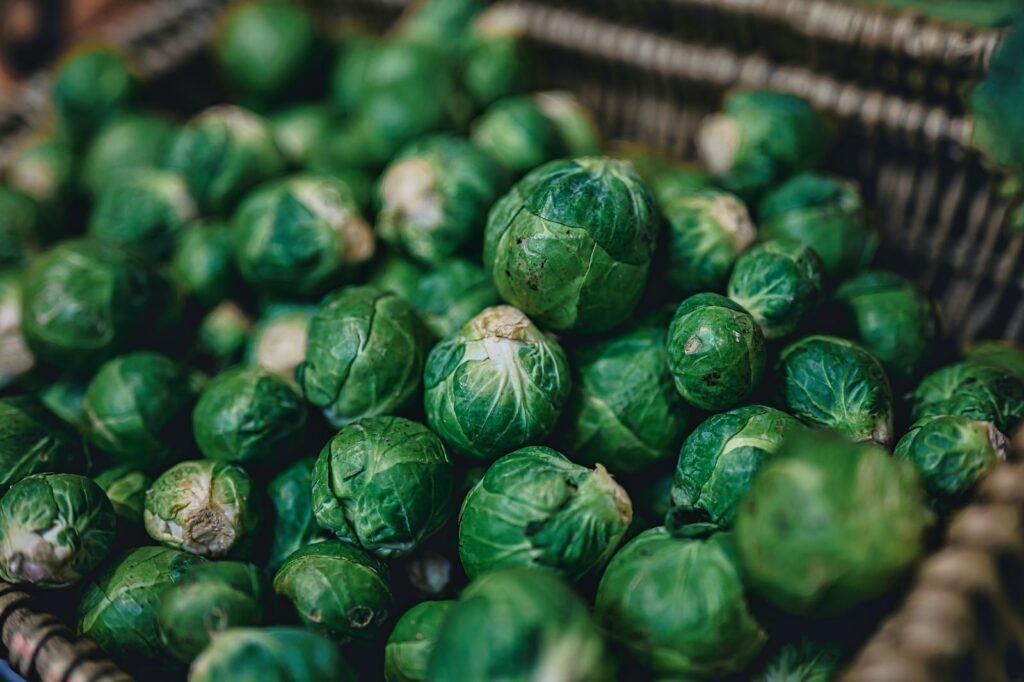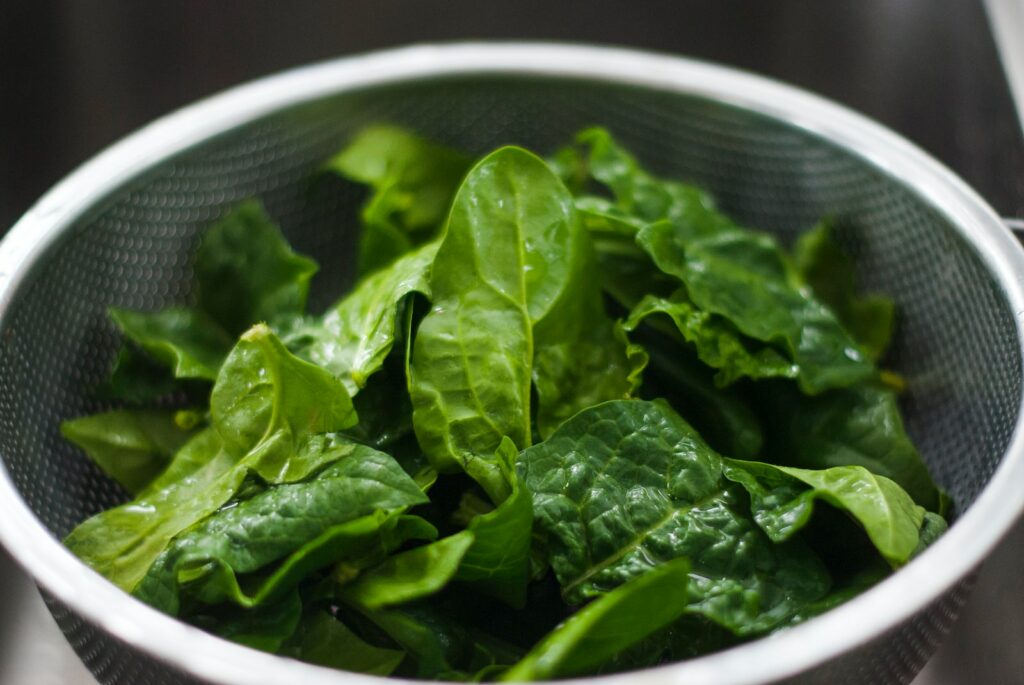
Brussels sprouts are a type of small, round leafy green vegetable from the cabbage family. With a slightly bitter taste, they’re a popular vegetable in New Zealand due to their versatility and nutritional benefits. This cruciferous vegetable has a surprisingly long list of health benefits, making them well worth adding to your diet.
Nutritional Values
Brussels sprouts are packed with essential vitamins and minerals that provide a range of health benefits. In just one cup of cooked Brussels sprouts, you’ll get:
- Vitamin C: A powerful antioxidant that can help boost your immune system.
- Vitamin K: Essential for building and maintaining strong bones.
- Vitamin A: For healthy vision and skin.
- Folate: An important B vitamin for cell growth and development.
- Iron: Important for carrying oxygen around the body.
- Potassium: A mineral that helps regulate fluid balance and blood pressure.
- Fiber: Necessary for a healthy digestive system.
Brussels sprouts are a low-calorie food, and are fat-free, cholesterol-free, and sodium-free. This makes them a great way to add bulk to any meal while cutting calories. Additionally, they’re a great source of plant-based protein, with 4.5g of protein per cup, so they’re an ideal choice for vegetarians and vegans.
The Health Benefits of Brussels Sprouts
Eating Brussels sprouts can provide a range of health benefits. From improving heart health to protecting against certain types of cancer, these little green veggies are worth including in your diet.
Heart Health
Studies have shown that Brussels sprouts can help reduce the risk of cardiovascular disease. The vegetable contains powerful antioxidants that fight off free radicals, protecting your cells from damage. Additionally, they contain omega-3 fatty acids, which have anti-inflammatory properties that can help lower your risk of heart disease and high blood pressure.
Cancer Prevention
Brussels sprouts contain high levels of glucosinolates, which break down into sulforaphane when the vegetable is chewed or chopped. Sulforaphane can help protect your cells from carcinogens and may reduce the risk of certain types of cancer.
Improved Digestion
The high fiber content of Brussels sprouts can help improve your digestive health in several ways. Fiber helps keep you regular, and can also help lower your risk of certain digestive conditions such as irritable bowel syndrome and diverticulitis. It can also help you feel full for longer, so you’re less likely to snack between meals.
How to Cook Brussels Sprouts
Brussels sprouts can be cooked in a variety of ways, making them an incredibly versatile vegetable. Here are a few of the most popular methods:
- Roasted Brussels Sprouts: Roasting Brussels sprouts brings out their sweet, nutty flavour. Cut sprouts in half, toss with olive oil, salt and pepper, and then bake in an oven at 200C (400F) for 25-30 minutes.
- Steamed Brussels Sprouts: This method helps to preserve the nutritional content of Brussels sprouts. Place the sprouts in a steamer basket over boiling water for about 5 minutes, or until the sprouts are tender.
- Sautéed Brussels Sprouts: Heat a pan over medium heat, add a tablespoon of olive oil, and then add chopped Brussels sprouts, stirring often. When the sprouts start to become golden, add a tablespoon of water and cover, allowing the sprouts to steam until they are tender.
Once you’ve cooked your Brussels sprouts, you can add whatever flavourings you like. Garlic, lemon juice, and herbs all go great with Brussels sprouts. You can also add them to stews, salads, and stir fries.
Final Thoughts
Brussels sprouts are a nutrient-dense vegetable that are packed with essential vitamins and minerals. Eating them regularly can help reduce the risk of cardiovascular disease, certain types of cancer, and certain digestive conditions. They’re also incredibly versatile, with a range of ways to cook them, so there’s bound to be a way to incorporate them into your diet.


